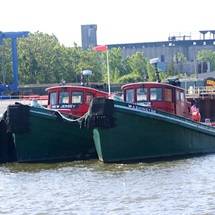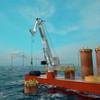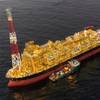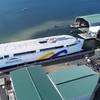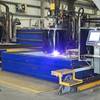Rewriting the Recycling Model
At just one year old, ReShore LLC said it is still in its infancy, but over the past 12 months, the fledging spinoff from Rubberform Recycled Products has gone through many changes and faced many challenges. The company’s original flagship product (an erosion control device) had to be tabled for budgetary and testing constraints. Early supply issues constantly tested the firms commitment to quality and consistency. These and other barriers strained ReShore’s resources and hammered on leadership’s enthusiasm. But they’ve weathered the worst of the storm.
Now in its second year, ReShore said it is squarely focused on fendering. The company has developed a processwhich they say can bring to market the highest quality and most cost effective fender systems to tug, freight and harbor operators around the world.
The process starts with the procurement of high quality, fiber reinforced conveyor belt primarily from coal mines across North America. The belts are sorted, graded and stored in RubberForm’s 50,000-square-foot facility in Lockport, N.Y. The entire belt eventually is die-cut according to the fender application. As the die-cut “puds” are produced, they are stacked on steel rods, compressed under many tons and welded into place for a secure fit.
The basic ReShore fender “unit” is three feet long, roughly 12 inches wide, and weighs nearly 75 pounds. This size is critical to the fender’s ultimate functionality. It can be installed (if necessary) by one person. Although ReShore will custom design and fabricate fender’s to suit any need, it is the segmented units that make the product so versatile. Whether hanging as a portable pigtail off the side of a tug, or bracketed along the skirting of a pier, the ReShore laminated fender offers uncompromising security, safety and durability. And since the fender is fabricated using flat belt material (as opposed to curved and grooved tires) it will wear evenly and consistently throughout its life, the manufacturer claims.
The bigger goal for ReShore (and parent company RubberForm), is to develop the most efficient (and profitable) platform for the procurement, development, manufacture and distribution of recycled products in the world. “We’re not making birdhouses from milk cartons here,” said Bill Robbins, President of Rubberform. “We strive to develop high quality products to compete in the main stream both in terms of quality and cost.”
“TCO, or total cost of ownership is what we try to teach our customer”, added Brooks Anderson, ReShore President. “Our products in most cases will be less expensive anyway, but overall our products last longer and perform more consistently, thereby providing the customer with a much lower TCO.”
“We see opportunity in certain “green” businesses,” Anderson said. “Stand-alone profitability is critical to our success. Solar power, wind power, electric cars, etc. Tell me how they earn money without subsidies and I’ll listen. But in my mind, we are the only ‘tangibly green’ business out there. We are fueling the economy - not sapping it. That’s as important to us as helping save space in landfills.”
As ReShore dives deep into the commercial marine segment, other markets are continually popping up for parent RubberForm. The ultimate goal for Robbins and Anderson is to have several subsidiaries under the RubberForm umbrella, each penetrating a market for which they feel there is plenty of potential.
reshorellc.com



